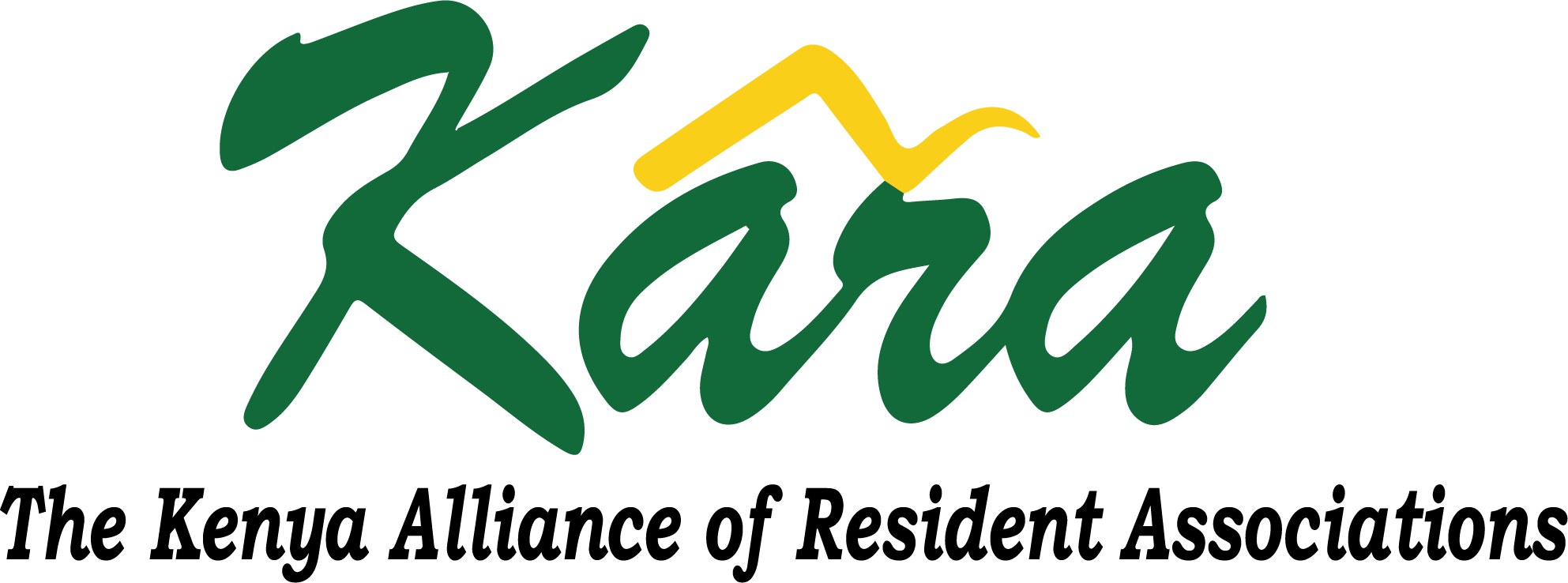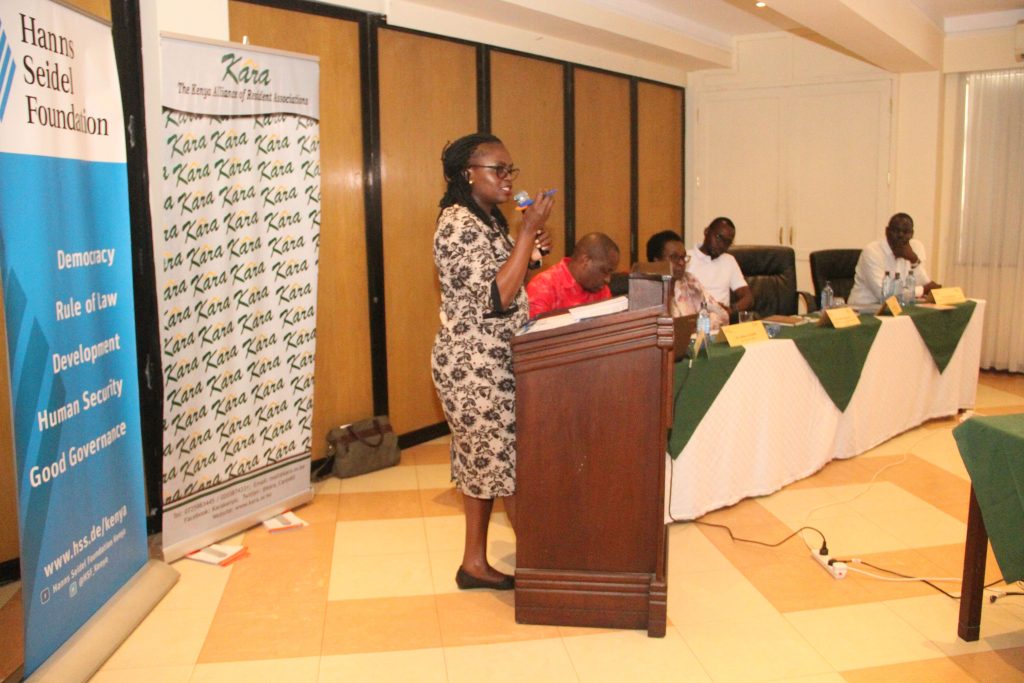The Sustainable Waste Management Act 2022 provides for a shift in waste management from linear to circular system and it is expected that the practice of waste separation will be embraced right from the household level. However, there is still low level of awareness on the roles and responsibilities of various actors and the opportunities and benefits that come with circular economy approach to waste management.
In order to sensitize Resident Associations in Mombasa and other actors on the new approach to waste management, KARA hosted a forum in Mombasa on the theme: “Circular economy approach to waste management in Mombasa: Opportunities, Benefits and Role of Resident Associations.” The forum was addressed by Dr. Esther Getambu, Vice Chairlady, KARA; Mr. Alex Kubasu, Programme Coordinator, Circular Economy Initiative, WWF-Kenya and Dr. Pauline Oginga, Chief Officer, Environment and Solid Waste Management, Mombasa County.
While speaking at the forum, Dr. Pauline Oginga outlined the county’s initiatives in managing waste and called on the residents to work closely with the administration to ensure sustainable change towards environmental conservation at the neighborhoods. She decried poor handling of waste and failure by residents to take responsibility for the trash they generate. She also noted that it was difficult to manage waste because residents do not sort the waste that they generate at households. She stated the county produces 708 tonnes of garbage daily with 60 per cent being organic waste mainly dumped at the Mwakirunge dumpsite.
Among the initiatives being undertaken by the County is the mapping and registering of waste collectors across the county to enhance accountability and promote job creation among youths. The county has also removed illegal dumpsites and put up surveillance officers in various neighborhoods. The county is in the process of piloting a two bin waste model in selected areas in Mombasa i.e. Mvita island, Nyali and Likoni. The County is also in the process of establishing material recovery facilities to promote waste recycling and recovery. She noted that the county administration will strengthen its collaboration with KARA and other stakeholders so as to enhance sustainable waste management practices in Mombasa County.
Circular Economy expert Mr. Alex Kubasu emphasized the need for behavior change and a mindset shift and called on Mombasa Residents to fully embrace circularity in their purchasing, consumption and waste disposal decisions. He noted that the County Government has established a robust legal and institutional framework for sustainable management of waste by promoting progressive requirements such as segregation of waste at source and incorporating circular economy principles. He added that the national government has also provided guidance for an enabling policy and regulatory environment to facilitate the counties to consistently and effectively deliver strategic upstream interventions to combat the problem of waste management by facilitating progressive policies and legal frameworks, key among them being EPR that is currently anchored under the National Sustainable Waste Management Act. He stated that the WWF’s vision of No Plastic in Nature by 2030 integrates very well with Kenya’s legislative and policy frameworks that seek to accelerate the transition from a linear to a circular economy. He noted that WWF will collaborate with KARA and the County Government of Mombasa to pilot a project that seeks to build a case for segregation of waste at source as envisioned in the recently enacted solid waste management act and policy by the County Government of Mombasa. The project will target the low and middle-income areas of Likoni and Mvita respectively with the potential of conducting a similar pilot in the high-income area of Nyali. The project will target Resident Associations and organized households through close collaboration with designated private waste managers that have received training on material valorization with the support of the County Government that is keen on accelerating the transition from a linear to a circular economy by building a strong business case for improved recycling/reuse value chain for all waste categories.
Kara Vice Chair, Dr. Getambu noted that transitioning to a circular economy requires proper civic education and strategic investments in infrastructure. She added that it will also require policy coherence, coordination and collaboration among Resident Associations and stakeholders across the County.

